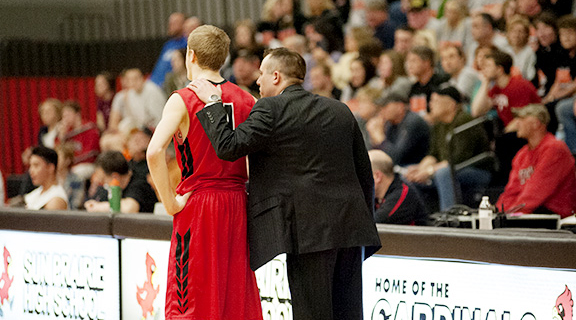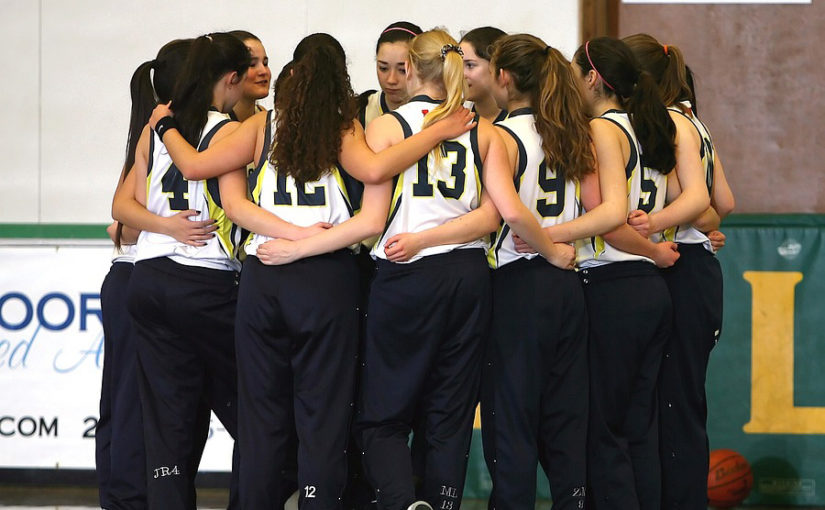The Challenge of Hiring Quality Coaches
For some athletic administrators, it has become more difficult to hire quality coaches and this may even be a greater concern involving a few sports which traditionally lack a large number of candidates.
Therefore, it comes down to taking three concrete steps to address this problem. The first one is to define what is meant by quality and this may vary according to your background and setting.
In light of the philosophical concept of education-based athletics, anyone who embraces this approach should be looking for individuals who are positive, supportive, nurturing, and put the needs and welfare of student-athletes above everything else. And this means valuing these qualities more than simply winning contests. While all coaches should prepare their teams and strive to win games, more is needed than simply looking at a candidate’s win-loss record and their offensive and defensive coaching philosophies. Some administrators have stated that they want to hire a coach to install a winning culture. It would be much more accurate if this was restated to include that you wanted to hire an individual who will create an environment in which student-athletes will flourish, and gain life-long qualities and values. There is a world of difference between developing a winning culture and that of providing the best educational opportunities for young people.
While all coaches should prepare their teams and strive to win games, more is needed than simply looking at a candidate’s win-loss record and their offensive and defensive coaching philosophies. Some administrators have stated that they want to hire a coach to install a winning culture. It would be much more accurate if this was restated to include that you wanted to hire an individual who will create an environment in which student-athletes will flourish, and gain life-long qualities and values. There is a world of difference between developing a winning culture and that of providing the best educational opportunities for young people.
Therefore, your first task is to analyze and make an honest determination of what exactly you value and want with your coaching staff. Once you have determined what you are looking for in coaches, you can start addressing the need of increasing your pool of possible individuals to apply and interview for your vacancies.
You may have to be creative to locate candidates and ‘creative’ is the right word to describe the process. Why? Because the normal, traditional approach of posting vacancies may not be working to produce high quality or even a greater number of candidates.
The following are some creative steps that you might try to locate more candidates and quality coaches.
- Emphasize in all vacancy notices, during Parent-Teacher Association, Booster Club, and community meetings, and in all publications that you are looking for individuals who believe in and embrace education-based athletics. While this may seem somewhat simplistic and represents common sense, it is vitally important to clearly get the message out that this philosophical concept is the foundation and basis for your program.
- Canvas and communicate with teachers in your district, and try to recruit them to fill openings. This is not a new concept. If they hear your declaration that the foundation of your program is education-based, however, this could be a great selling point. Of course, you will also have to convince some instructors that you have provisions in place to limit the intrusion by a few misguided parents, because this is the number one reason why individuals leave or stop coaching.
- Reach out to college coaches in your area. They may be aware of former players who might be interested in entering the field. College coaches also have their own network and can spread the word that you have a vacancy.
- Contact alumni who were former players in your program. They already have a connection to your program and probably had a great, positive experience. Perhaps they are in a position where they would like to give back to a sport they loved.
The third prong of your effort is the interview and it has to be guided with questions that will reveal whether an individual is a good fit for your program. Hopefully, this means that you are trying to judge whether a candidate will work well within your education-based philosophical concept which guides your program. To accomplish this goal, develop questions that will require the person to provide examples or to share solutions to hypothetical situations or problems. And some of the hypotheticals can actually be based upon real incidents that have occurred at your school.
- Start with the normal and traditional offer, “Please take a minute and tell us a little about yourself.” While this opening is not directly connected with education-based athletics, it has long been used to give the candidate a chance to relax a little before handling more specific questions. But don’t overlook the important insight that you can gain from this opening statement. It can be extremely enlightening.
- Ask the candidate to provide an example of a problem that his or her team had with sportsmanship and what steps were taken to correct or improve it. Or give the individuals a situation and ask them how they would have handled it?
- Raise the idea of using teachable moments with teams and request the individuals being interviewed to provide a couple of examples that they have used. And if they aren’t sure what a teachable moment is, you have already gained valuable insight.
- Have the candidates share a recent community service project in which their team participated. As a follow-up, explore how the decision was reached to get involved with this particular choice. Were student-athletes involved in the selection and did they play any leadership roles during the project?
- Ask the individuals being interviewed how they measure success in athletics. Obviously, you are looking for benchmarks other than winning games or championships and whether the individuals even mention anything connected to the growth and development of young people. Are lifelong qualities and values ever included in the answer?
- Pose the following hypothetical situation to the candidates. One of your players is struggling in one of his academic classes and he has a test coming up in the next day or two. What steps could and would you take to make sure that this athlete is best prepared for this responsibility?
- See how the candidates handle this question. After the season, what would your senior players say that they gained by playing for you? As a follow-up, would they try out again and play another season for you if they had the opportunity? With a little due diligence on your part, you should be able to contact the candidate’s current or former athletic administrator to compare his or her thoughts with the answer of the interviewee. It could be enlightening.
While these questions are not intended to be an all-inclusive list, they should serve as an example of what you can use. It is critical to develop questions that will provide insight into a candidate’s commitment to the education-based concept.
By determining what traits you want in your coaches, using a little creativity to locate and possibly expand your pool of candidates, and putting thought and effort into developing interview questions to provide insightful responses, you should be able to secure quality coaches.





